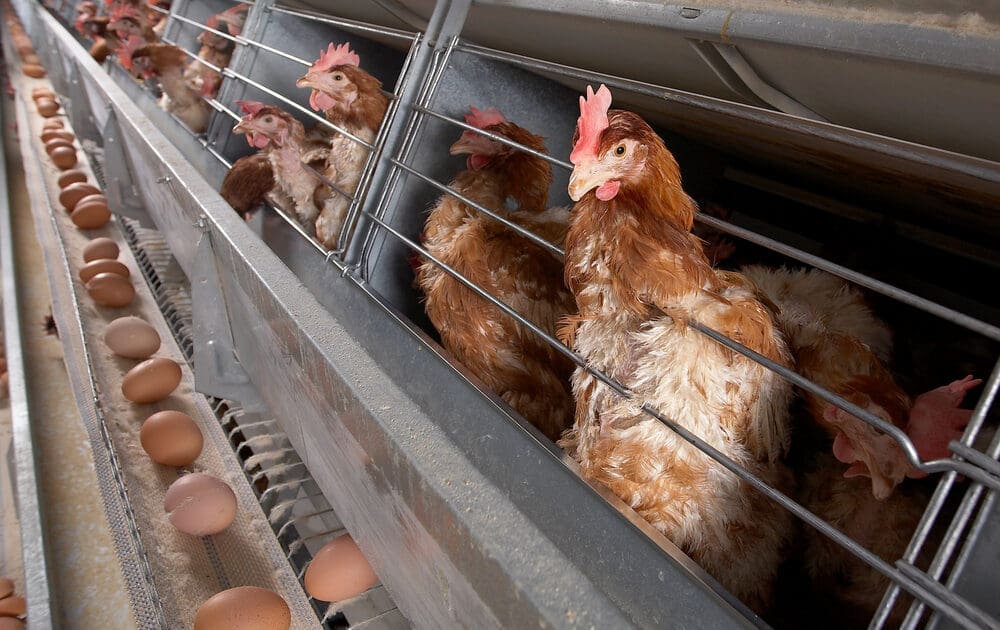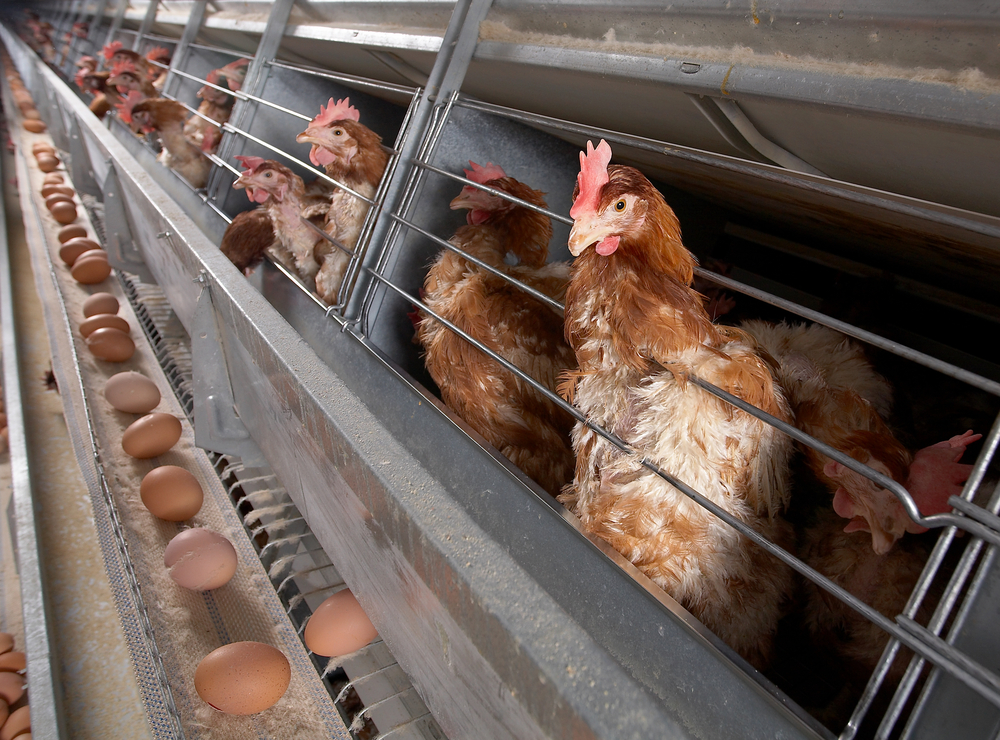Factory Farms Exposed: A New Book Goes Behind the Barn Door

The vast majority of animals raised for food don’t live healthy lives. Most of them live more like prisoners, particularly here in the U.S., where factory farms are now the norm. The companies behind these practices willfully misguide consumers with carefree bucolic imagery slapped on product packaging disguising the harsh reality that most of these animals live inside metal and brick, in dark, putrid conditions where diseases, cannibalism, and ongoing suffering are the norm. The only glimpse of sunlight often comes on the way to slaughter.

Sonia Faruqi, a former Wall Street banker, lied her way into animal farms around the world, posing as a hopeful future farmer. Visiting small family farms and gargantuan factories that housed tens of thousands of animals, the journey became her book, “Project Animal Farm: An Accidental Journey into the Secret World of Farming and the Truth About Our Food.” She exposes cruelty at organic farms, and busts myths behind common claims including “natural”, “cage-free”, and even “family run,” a particularly deceptive assertion that implies family values and ethics, even when a million animals may pass through the “family” farm in a year.
What started out as an apparent vacation–a visit to a nearby cattle farm–turned into a global expedition, visiting any farm Ms. Faruqi could gain access to.
Organic Authority caught up with Ms. Faruqi via email.
Organic Authority: Going from Wall Street to animal farming is quite a leap. But you actually note in the book that there’s a lot more in common between the two than meets the eye, especially when it comes to large-scale factory farms. Can you explain that connection?
Sonia Faruqi: Having studied economics and worked on Wall Street, I understand business fundamentals and numbers and the corporate mindset. It was in part my willingness to engage in detailed discussions of costs and efficiencies that led me to fit in as well as I did, especially among corporate executives and government officials. With regard to both Wall Street and animal agriculture, more regulation is needed. Scale isn’t as much a problem as unregulated scale.
OA: I was shocked by this and I don’t think most people know that the same farm that has stacks of caged birds in one building may also have flocks labeled as ‘free run’ or ‘outdoor access’ on the property, which you document in the book. How common is that occurrence? Do you think people would buy so-called “free-range” chickens if they knew they were running right next to buildings with caged animals inside?
SF: It doesn’t matter much whether a free-range farm is located on the same property as one with cages. It is surprising, yes, but it doesn’t affect the welfare of either set of animals.
OA: Another big shock is that many of these factory farms where animals never see the light of day boast websites and marketing materials with idyllic pastoral imagery, which you encourage people to ignore because it’s rarely accurate. Consumers are getting better about tuning out some meaningless words like “fresh” and “natural” but misleading happy farm images are everywhere and they certainly influence our purchasing decisions—why aren’t these deceptive practices regulated? Is there any government working to deal with it that could be an example for the U.S. (and Canada)?
SF: The agriculture lobby in the U.S. is powerful and tends to fight hard against any regulation, whether the regulation is slight or significant. “It is almost universally felt that when we call a country democratic,” wrote George Orwell, “we are praising it: consequently the defenders of every kind of regime claim that it is a democracy, and fear that they might have to stop using that word if it were tied down to any one meaning.” It’s the same way with agriculture. The European Union has, overall, taken positive steps in terms of introducing legislation.
OA: In your visit to Indonesia you saw a lot of small-scale operations, people raising chickens in their little yards, etc, all in juxtaposition with emergent factory farms. What can be done to keep developing countries from developing our taste for cheap, factory-raised animal products? Or is too late?
SF: It’s not too late. Awareness is the first step and action often follows from that awareness.
OA: One of the reoccurring themes in the book is how women are bringing some much needed compassion and nurturing to animal farming, but they still only represent a very small number of farmers. Do you think that’s changing or will change soon? And how will that affect our food system?
SF: In other fields that were previously male-dominated (most fields), we see today a significant proportion of women—whether we’re talking about law or medicine or science. But agriculture remains overwhelmingly male-dominated. Men and women bring different sets of values and ideas to the workplace; opinions and views on farm animals and food issues are known to vary considerably by gender. It is important to have both sets of perspectives on the table. Women need to be a part of decision-making.
OA: You visited some pretty horrific farms as well as a slaughterhouse. What was more horrifying? Seeing how the animals lived or how they died?
SF: To my mind, it’s not about what’s “horrific” or what’s not. It’s about identifying specific problems and finding specific solutions to them. Both farms and slaughter plants should have more regulations and better inspections. There’s no excuse for animal mistreatment, whether on a farm or a kill floor.
OA: You came out of the journey an advocate for a farm practice you call large pastoral. how realistic do you think it is that we can transition away from CAFOs to more farms like these? What will it take to get us there?
SF: It will take a change in mindset of both producers and consumers to get us there. Large-pastoral agriculture is a possibility for the planet if meat consumption decreases simultaneously.
OA: And how about the animals themselves—did you learn anything about farm animals you weren’t expecting?
SF: had previously had very little interaction with farm animals. Like most people, I’d hardly ever seen cows, pigs, or chickens before. Now, I found that I liked them. I developed a deeper appreciation of animals and a stronger connection to them.
Find Jill on Twitter and Instagram
Related on Organic Authority
EPA is Failing to Regulate Air Pollution from Factory Farms, Lawsuit Says
Cheap Burgers and Factory Farms: Why is Our Meat Industry So Broken?
Blowin’ in the Wind: Antibiotic-Resistant Bacteria ‘Dust’ from Factory Farms is Airborne
Factory farm image via Shutterstock

